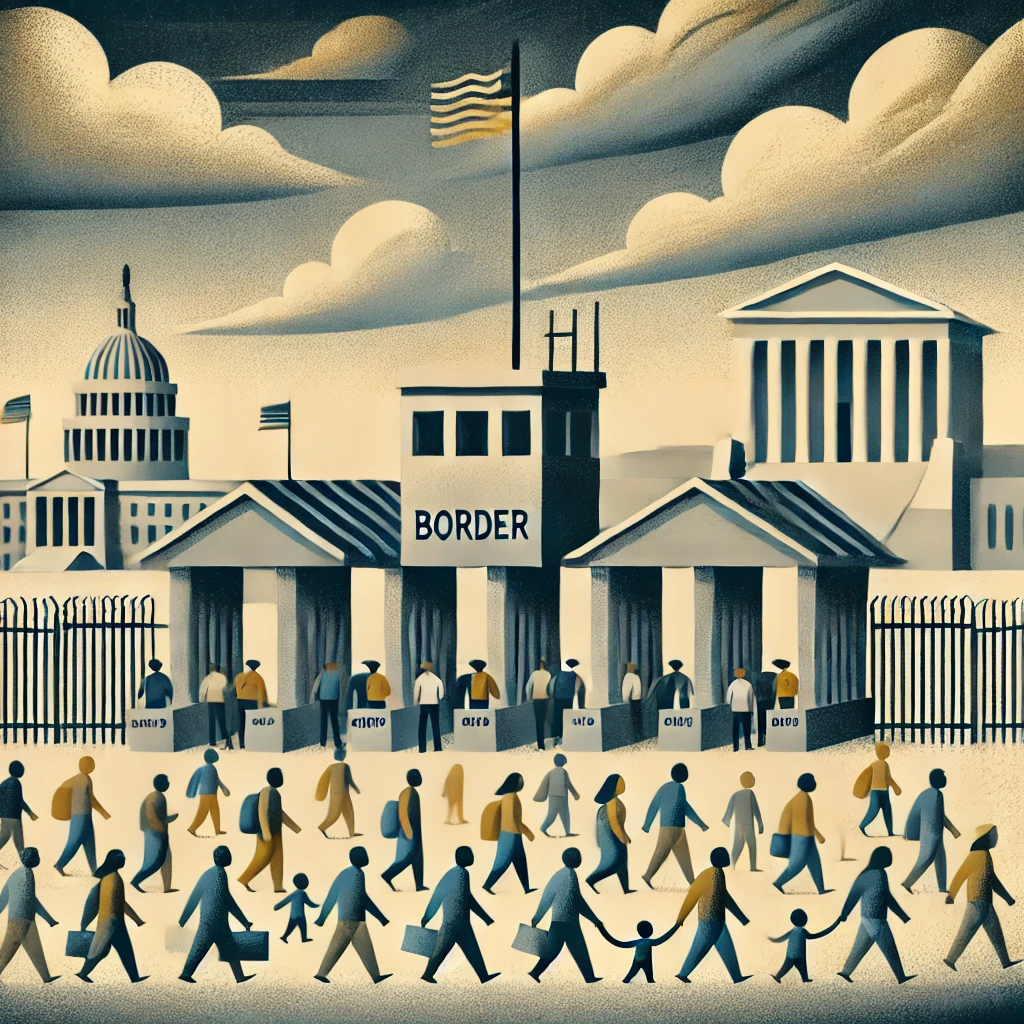On January 20, 2025, President Donald Trump signed a series of executive orders that mark a significant shift in U.S. immigration policy. These measures have far-reaching consequences for migrants, asylum seekers, and immigrant communities. Below, we analyze the key policy changes, their immediate implications, and the broader impact on immigration.

Key Policy Changes
- Suspension of the CBP One App The CBP One app, which was previously used to facilitate legal entry appointments for migrants, has been disabled. This suspension has affected approximately 30,000 applicants, leaving many in a state of uncertainty as they wait for clarity on the next steps.
- National Emergency Declaration President Trump declared a national emergency at the southern border, enabling the deployment of military resources to assist in border enforcement. While this move aims to strengthen border security, it raises concerns about the militarization of border areas and its impact on border communities.
- Reinstatement of the “Remain in Mexico” Policy Migrants seeking asylum in the United States are now required to remain in Mexico while their cases are processed. This policy, which was in effect during Trump’s first term, exposes asylum seekers to potentially unsafe and challenging conditions during their wait.
- Immediate Expulsion Policy The administration has expanded expedited removal procedures, allowing for the rapid deportation of undocumented individuals without judicial hearings. This policy significantly increases the scope of immediate expulsions, creating heightened risks for affected migrants.
- End of Birthright Citizenship An executive order has been issued to end birthright citizenship for children born in the U.S. to non-citizen parents. This controversial measure is expected to face significant legal challenges due to its constitutional implications.
Implications for Migrants
- Increased Deportations The expansion of expedited removal procedures could result in a surge of deportations, potentially separating families and disrupting immigrant communities.
- Legal Ambiguities The termination of birthright citizenship introduces legal uncertainties for children born to non-citizen parents, possibly rendering many stateless and without clear legal protections.
- Humanitarian Concerns Policies like “Remain in Mexico” force asylum seekers to endure extended periods in precarious conditions while awaiting decisions on their cases, raising serious humanitarian issues.
Broader Impact on U.S. Immigration Policy
These policy changes reflect a stringent approach to immigration, emphasizing enforcement and deterrence over accommodation. While supporters argue that these measures enhance national security and uphold the rule of law, critics contend that they undermine the rights of migrants and create unnecessary hardships for vulnerable populations.
Looking Ahead
The implications of these policies extend beyond immediate enforcement actions. They represent a broader shift in the U.S. immigration framework, one that prioritizes restriction over integration. The long-term effects on immigrant communities, asylum seekers, and the broader society remain uncertain, as these measures are likely to face both legal and political challenges.


